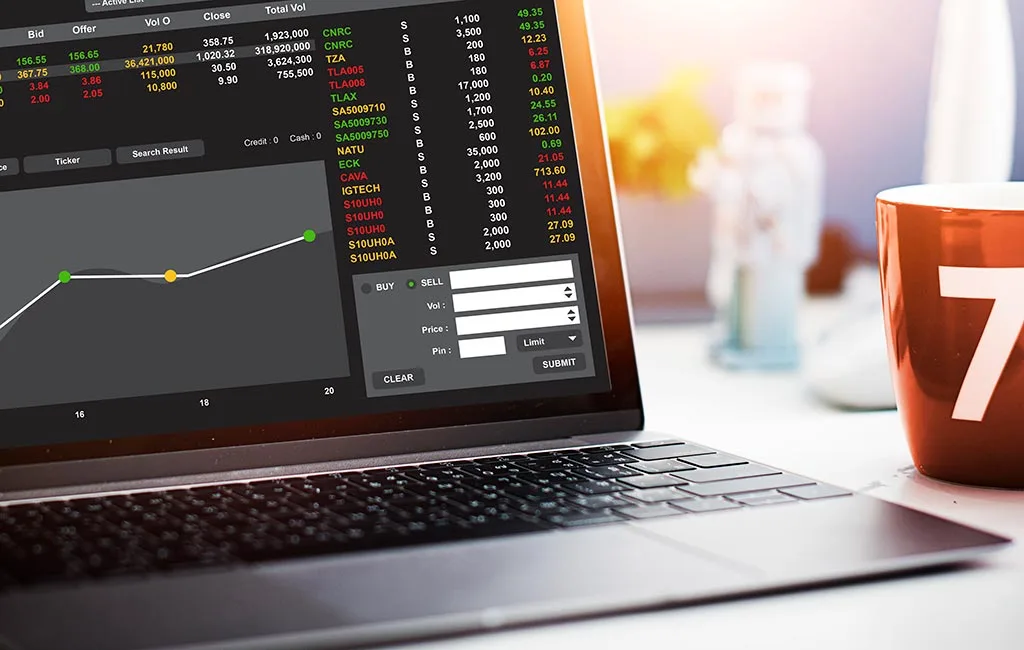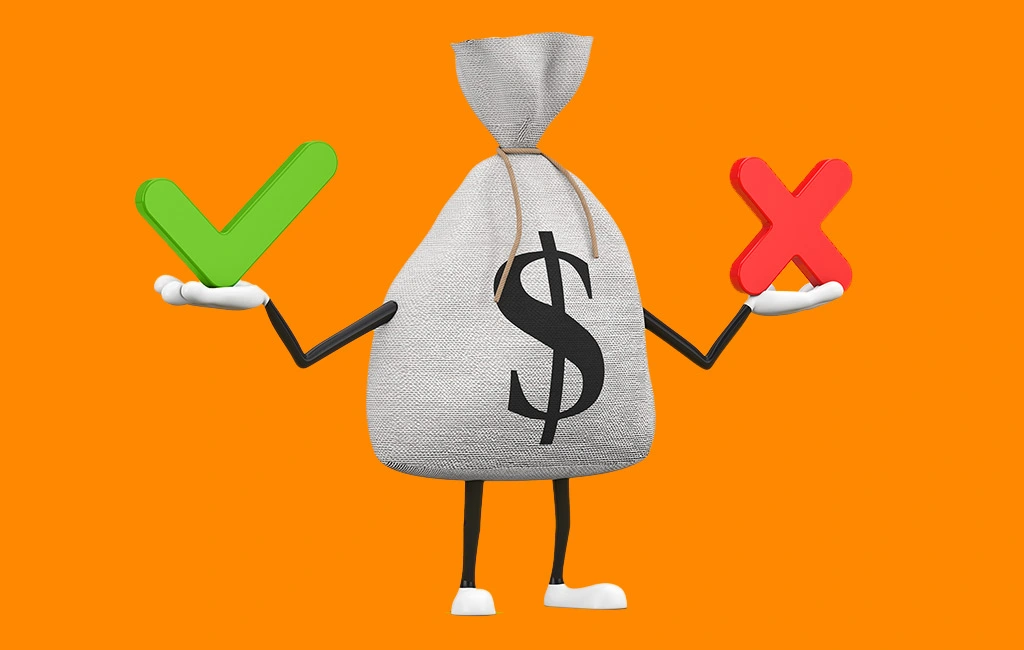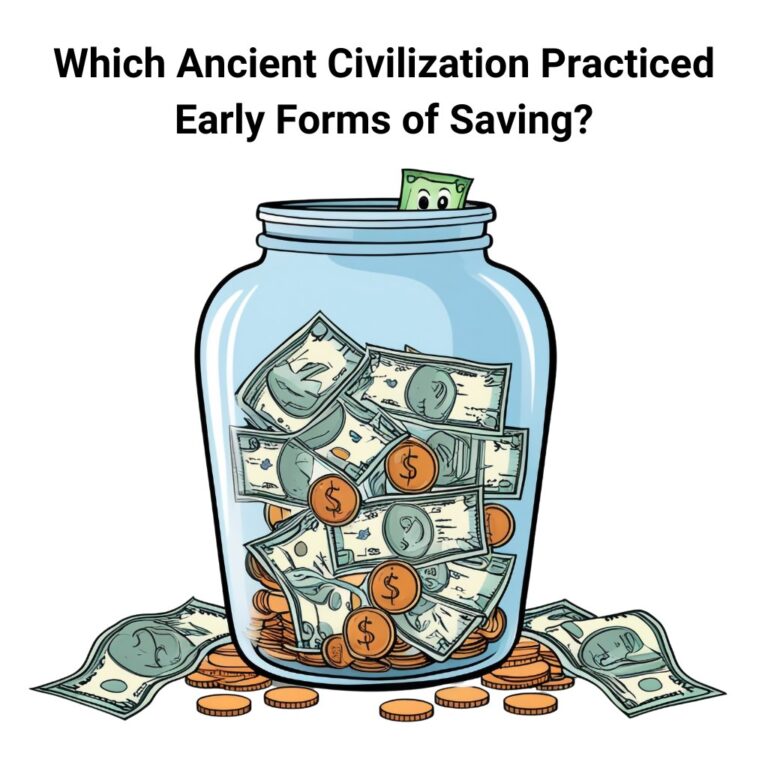In our quest to find the ideal savings option that marries both safety and convenience, one critical question often surfaces: are money market accounts safe? Offered by banks and credit unions, these accounts represent a unique intersection of traditional checking and savings accounts.
They blend familiar features like check-writing, debit card usage, and ATM access with their own distinct characteristics. This mix of elements makes money market accounts a standout choice for those seeking both accessibility and potential financial growth, all while keeping an eye on safety.
Navigating the intricacies of money market accounts reveals a landscape of specific restrictions and requirements. For instance, these accounts might limit the number of allowable monthly transactions and typically necessitate a higher minimum balance compared to regular savings accounts. The relationship between your account balance and factors like interest rates and fee structures is also a unique aspect of money market accounts.
As we delve into the details throughout this guide, we’ll refer to these versatile accounts as money market savings accounts, money market deposit accounts, or money market demand accounts. Our goal is to unfold their complexities, offering a comprehensive understanding of their safety and efficacy as a tool in your financial strategy.

What is a Money Market Account?
A Money Market Account (MMA) is a special type of deposit account offered by banks and credit unions, combining features of both savings and checking accounts. It is designed for individuals seeking a secure place to save money while earning higher interest rates than traditional savings accounts.
One of the key aspects of an MMA is the insurance coverage provided by the Federal Deposit Insurance Corporation (FDIC) or the National Credit Union Administration (NCUA), which safeguards deposits up to $250,000 per account owner. This insurance is a significant factor contributing to the safety and reliability of money market accounts, ensuring that your savings are protected up to the specified limit.
While MMAs offer higher interest rates, they do come with certain restrictions, particularly in terms of transaction limits. These accounts typically restrict the number of transactions made through checks, debit cards, or electronic transfers. However, they usually allow unlimited withdrawals and payments through ATMs, in-person transactions, mail, or telephone, providing a degree of flexibility.
Additionally, MMAs often require a minimum deposit amount to open and maintain the account. If you hold multiple accounts with a bank or credit union, it’s important to confirm the total FDIC or NCUA insurance coverage across all accounts, ensuring that your deposits are fully protected under the applicable regulations.

Safety Measures for Money Market Accounts
The FDIC and NCUA underscore the robust safety measures in place for money market accounts, providing depositors with a high level of security and peace of mind.
Understanding the FDIC's Role in Money Market Account Protection
Money market accounts, known for their safety and reliability, owe much of their security to federal insurance, particularly from the Federal Deposit Insurance Corporation (FDIC). When you deposit funds in a money market account at an FDIC-insured bank, your money is protected up to $250,000 per depositor, per bank. This assurance is a significant factor in safeguarding your finances against bank failures. The FDIC’s BankFind tool is a handy resource for verifying a bank’s insurance status, adding an extra layer of confidence to your banking decisions
NCUA Insurance: Safeguarding Your Savings in Credit Unions
Credit unions offer a parallel level of security for money market accounts through the National Credit Union Administration (NCUA). Just like the FDIC, the NCUA insures deposits up to $250,000, ensuring that your savings in money market accounts are protected under similar terms. The NCUA’s Credit Union Locator is a helpful tool for depositors to confirm the insurance status of credit unions, reinforcing the trust in these financial institutions.
Navigating Bank Failures: How the FDIC Protects Your Money
In the event of a bank failure, the FDIC’s role in protecting depositors is crucial. When a bank can no longer meet its obligations, the FDIC intervenes by reimbursing depositors up to the insured limit. Furthermore, the FDIC also takes on the role of a receiver, managing the failed bank’s assets and settling its debts, including amounts exceeding the insured limits. This process is vital in maintaining financial stability and depositor confidence.
The NCUA's Approach to Credit Union Stability and Depositor Security
The NCUA’s strategies in managing credit union stability mirror the FDIC’s approach but are tailored for credit unions. In scenarios where a credit union’s stability is in question, the NCUA may assume control, operating the institution under a conservatorship. This action ensures that depositors retain access to their funds and continue their banking activities without interruption, under the protection of the NCUA.
Case Study: Handling Bank Failures and Protecting Depositors
A notable example of the FDIC’s intervention in bank failures is the case of First Republic Bank in early 2023. After its closure by California regulators, the FDIC, appointed as the receiver, quickly brokered a deal with JPMorgan Chase. This agreement allowed for a seamless transition of operations and assets, including money market accounts, ensuring uninterrupted service and security for depositors.
Conservatorships and Liquidations: The NCUA's Strategy for Credit Union Management
In managing credit union challenges, the NCUA may opt for conservatorship or liquidation. Conservatorship, a temporary measure, allows a struggling credit union to recover and potentially merge or resume operations. Liquidation, on the other hand, involves the NCUA paying out insured deposits and possibly arranging deals with other credit unions. As of October 9, 2023, the NCUA reported three conservatorships and two involuntary liquidations, highlighting its active role in ensuring the stability and safety of credit union members’ deposits.

Misconceptions of Money Market Accounts
Common misconceptions about MMAs include the belief that they offer guaranteed returns or that they are completely risk-free. While MMAs are relatively safe, they are subject to interest rate fluctuations and inflation risks. Understanding these aspects is key to setting realistic expectations about the safety and potential of these accounts.
1. Money Market Accounts and Money Market Funds are the Same
A common misconception is that money market accounts and money market funds are interchangeable. This is not the case. Money market accounts are deposit accounts offered by banks and credit unions, typically insured by the FDIC or NCUA up to $250,000. In contrast, money market funds are investment products that invest in short-term debt securities and are not insured. While both aim to offer liquidity and stability, they differ significantly in terms of risk and protection.
2. Money Market Accounts are a Safeguard Against Inflation
Another myth is that money market accounts are a safeguard against inflation. While MMAs generally offer higher interest rates than traditional savings accounts, their rates may not always keep pace with inflation. This means that over time, the purchasing power of the money in these accounts would decrease if inflation rates exceed the interest rates offered.
3. A Huge Fund Allocation is Efficient
Some believe allocating a large portion of their funds to a money market account is an efficient strategy. However, while MMAs are relatively safe, they might not offer the growth potential of other investment options. Diversifying your portfolio across different types of investments, including stocks, bonds, and real estate, can be a more effective approach to managing risk and achieving financial goals.
4. Are Money Market Accounts Safe and a Beneficial Option?
It’s often assumed that money market accounts are the most beneficial option for all savers. While they offer several advantages like safety and liquidity, they are not a one-size-fits-all solution. Depending on your financial objectives, risk tolerance, and investment timeline, other options might be more suitable. It’s important to consider all available choices before deciding on where to park your savings.
5. One Account is Enough
There’s a belief that having just one money market account suffices for all savings needs. In reality, diversifying your savings across different types of accounts can be beneficial. Different accounts offer varying interest rates, access levels, and risk profiles. Balancing your savings across multiple accounts, including checking accounts, traditional savings accounts, and investment accounts, can offer a more comprehensive approach to financial planning.

Money Market Accounts Versus Money Market Funds
It’s crucial to distinguish between money market accounts and money market funds. While they sound similar, money market funds are a type of mutual fund investing in short-term debt securities and are not insured by the FDIC or NCUA. This difference significantly impacts their risk profile, making MMAs generally safer than money market funds.
When navigating the world of personal finance, it’s essential to distinguish between money market accounts (MMAs) and money market funds, as they are fundamentally different financial products despite their similar names. Money market accounts are deposit accounts offered by banks and credit unions, much like savings accounts. They typically provide higher interest rates compared to regular savings accounts and come with the added benefit of federal insurance.
On the other hand, money market funds, also known as money market mutual funds, are investment products available at banks, brokerage firms, and investment fund companies. Unlike MMAs, money market funds invest in short-term securities, such as U.S. Treasury bills, and are considered a type of mutual fund.
Although they are often touted as low-risk investments, a key difference lies in their lack of federal insurance. Money market funds are not covered by the FDIC or NCUA, which means that while they might offer the potential for higher returns, they also carry a greater risk compared to federally insured MMAs. This distinction is crucial for investors and savers to understand, as it significantly impacts the risk profile and safety of the funds invested in these two different types of money market products.

What Makes a Money Market Account Unique?
Money market accounts stand out due to their blend of features from both savings and checking accounts. They offer higher interest rates, limited check-writing abilities, and easier access to funds compared to traditional savings accounts, making them a unique and flexible option for savers and investors.
Money market accounts (MMAs) stand out in the financial world for their unique blend of features that combine elements of both savings and checking accounts. This hybrid nature makes them particularly appealing to a wide range of savers and investors.
On one hand, MMAs function similarly to savings accounts, offering interest on deposited funds which aids in growing your money over time. This feature is a key differentiator from standard checking accounts, which typically offer little to no interest. The interest rates on MMAs are generally higher than those on regular savings accounts, making them an attractive option for those looking to earn more from their deposits.
At the same time, money market accounts offer a level of flexibility and accessibility often associated with checking accounts. Many MMAs can write checks and include a debit card, providing easy and immediate access to funds. This is especially beneficial for individuals who need occasional liquidity but don’t want to sacrifice the opportunity to earn interest on their balance.
However, it’s important to note that MMAs usually have certain restrictions, notably a limit of six withdrawals or transfers per statement cycle. Exceeding this limit can result in fees or even the conversion of the MMA into a non-interest-bearing checking account. This limitation is due to federal regulations and is critical to consider when managing your finances through a money market account.
Overall, the unique combination of higher interest earnings and convenient access to funds, with certain usage restrictions, sets money market accounts apart in the landscape of banking products. They offer a middle ground for those who want the growth potential of a savings account with the flexibility of a checking account, making them a versatile and valuable tool for effective financial management.

Pros and Cons of Money Market Accounts
The advantages of MMAs include higher interest rates, liquidity, and security through federal insurance. However, they also come with drawbacks such as higher minimum balance requirements and limited transactions. Weighing these pros and cons is essential in determining whether an MMA aligns with your financial objectives.
Money market accounts offer a blend of benefits that can be quite attractive to savers looking for both growth and accessibility. One of the most appealing features of these accounts is their ability to offer relatively high interest rates, which, in some market conditions, can exceed 5%. This potential for higher earnings is a significant draw, especially compared to traditional savings accounts.
Additionally, money market accounts provide the convenience of quick access to funds. Features such as ATM withdrawals, debit card usage for purchases, and check-writing capabilities make these accounts highly functional for everyday use. This combination of higher interest potential and easy access to funds positions money market accounts as a versatile option for managing both short-term and long-term savings.
However, there are also downsides to consider with money market accounts. One of the main drawbacks is the potential limits on transactions. Federal regulations often limit the number of certain types of withdrawals or transfers, which can be restrictive for those who need more frequent access to their funds.
Furthermore, when comparing the interest rates to other savings instruments like Certificates of Deposit (CDs), money market accounts might fall short. As of October 2023, for instance, the average money market interest rate stands at 0.65%, while the average 12-month CD offers a higher rate of 1.79%.
This difference can make CDs a more appealing option for those who do not require immediate access to their funds and are seeking higher interest earnings. Ultimately, whether a money market account is the right choice depends on individual financial needs and circumstances, particularly in terms of liquidity requirements and interest rate preferences.

Final Words
Addressing the common query, “Are money market accounts safe?”, it is evident that while no financial instrument is entirely without risk, money market accounts do offer a compelling mix of safety, liquidity, and comparatively better interest rates. This unique combination makes them an appealing option for a broad spectrum of savers and investors. Understanding the distinctive features, potential risks, and the robust protections in place, such as federal insurance, allows you to make a more informed decision about incorporating MMAs into your financial strategy.
For a deeper dive into the world of money market accounts, we invite you to read our comprehensive blog at EduCounting. You’ll find detailed insights and expert perspectives that can guide you in making savvy financial choices. Our blog is designed to empower you with knowledge, helping you navigate the complexities of financial planning with confidence. Visit EduCounting now and start your journey towards a more informed financial future!
FAQs
Can you lose money in a money market account?
While money market accounts are generally considered safe due to federal insurance, there is a minimal risk of losing purchasing power over time due to inflation, especially if interest rates are lower than the inflation rate.
Which is safer: a money market or a savings account?
Both money market and savings accounts are quite safe, especially when insured by the FDIC or NCUA. The primary difference lies in their interest rates and withdrawal flexibility, not in their fundamental safety.
Is it wise to invest in a money market account?
Investing in a money market account can be wise if you’re seeking a low-risk option with relatively easy access to funds combined with interest earnings that are typically higher than those of regular savings accounts.
How does a money market account operate?
A money market account operates similarly to a savings account, offering interest on deposits, but with additional features like check-writing and debit card access, albeit with certain transaction limits as per federal regulations.
How much money should I put in a money market account?
The amount to invest in a money market account depends on your financial goals, risk tolerance, and the need for liquidity, alongside considering the account’s minimum balance requirements and overall investment strategy.









